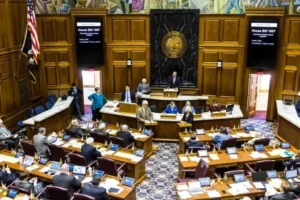Hamas has halted negotiations on extending the ceasefire deal after Israel delayed releasing 620 Palestinian prisoners due to repeated violations. Doctor Basem Naim, a senior Hamas official, warned that Israel’s actions placed the entire agreement in grave danger.
He insisted that no further discussions could occur unless Israel fulfilled its commitments. On Saturday, Hamas freed six living Israeli hostages, including three men who were paraded before armed fighters during a public ceremony.
The Israeli government condemned the staged handovers as humiliating and accused Hamas of exploiting hostages for propaganda. Israeli officials responded by suspending the prisoner release until Hamas ensured future exchanges would follow agreed-upon protocols.
Tensions escalated after Hamas returned the bodies of four Israeli hostages earlier in the week, including a mother and her two young sons. The situation worsened when Hamas initially transferred the remains of the wrong person before correcting the mistake.
Israeli authorities later revealed that the captors killed the two boys with their bare hands, contradicting Hamas’s claim that they died in an airstrike. Israeli Prime Minister Benjamin Netanyahu defended the decision to delay the prisoner exchange, arguing that Hamas’s violations undermined the ceasefire’s integrity.
The White House supported Israel’s move, calling it an “appropriate response” to the mistreatment of the hostages. “We’re hopeful that we have the proper time… to begin phase two, and finish it off and get more hostages released,” stated Trump
However, Hamas countered that Israeli forces mistreated Palestinian prisoners before their release and accused Netanyahu of sabotaging the agreement. A total of 33 Israeli hostages are supposed to be exchanged for 1,900 Palestinian prisoners during the first phase of the ceasefire deal.
Till now, 25 living hostages and four bodies have been returned. With the agreement’s six-week deadline approaching, both sides remain in a deadlock. If Israel and Hamas can not resolve their disputes, the risk of renewed hostilities remains high.











